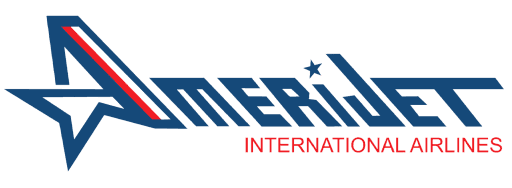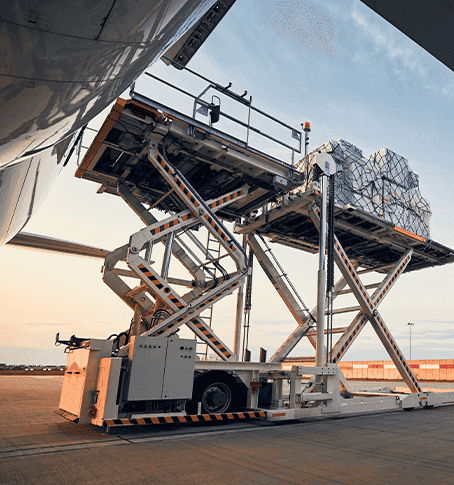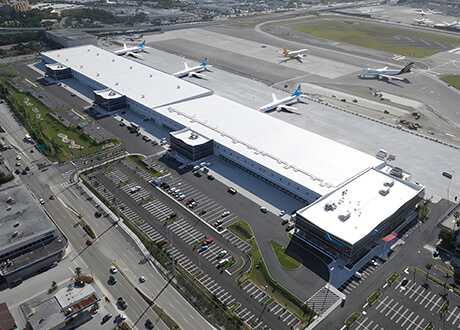
How to Plan for Supply Chain Disruptions
Amerijet International Airlines, a premier all-cargo carrier, offers these tips for guarding against disruptions.
Globalization has a dramatic impact on strategic sourcing and how the supply chain is managed. Generally, the more global a supply chain, the greater the likelihood of disruptions from labor strikes, cargo theft, natural disasters or political unrest. Schedule changes, in-transit delays, service disruptions and carrier bankruptcies are just a few other examples of sourcing, transportation and logistical issues.
Financial losses and decreased productivity, for example, can result when stock isn’t there to manage or sell. Your brand’s reputation is at stake when product is delayed, lost or sold out. Despite the risk of freight delays and product shortages, few organizations take the time to protect themselves against supply chain disruptions.
Amerijet International Airlines, a premier all-cargo carrier, offers these tips for guarding against disruptions:
Transportation planning. Few customer contracts allow you to deliver late without penalties so it’s important to have multiple plans in place. By establishing contingency plans, you can more easily find alternatives when delays happen.
If an airline or cargo operator cancels a flight or your cargo gets bumped, who will pick up the slack? Dedicated all-cargo carriers are a reliable alternative to other air freight providers. Amerijet offers direct, scheduled maindeck capacity on its B767 freighters between Miami International Airport (MIA) and 38 destinations in the Caribbean, Mexico, Central and South America, and serves more than 475 global destinations through its interline partners.
When production lines are down or disaster strikes, air cargo charters help mitigate supply chain disruptions. Air charters are also a cost-effective alternative to move large amounts of high-value freight, bulky shipments, or oversized cargo. Amerijet is a long-time charter operator, arranging service on its own freighters as well as those of cargo operators worldwide. Examples include relief charters to replenish supplies following Puerto Rico’s devastating Hurricane Maria in 2017 to special charters for construction equipment and oversized freight around the world.
Find back-up truckload (TL) and less-than-truckload (LTL) carriers, if those are the types of carriers you use. Start establishing relationships in advance. A good transportation broker can help you source reliable alternate carriers. Within the U.S. and Canada, Amerijet offers TL and LTL and expedited ground service, as an extension of its air freight services.
Sourcing and inventory positioning. Sourcing issues and inventory imbalances can be some of the biggest fallout from supply chain disruptions to recover from. For these reasons, many manufacturers are sourcing closer to home and hiring firms within their world region. They are also moving away from lean or JIT (just-in-time) inventories. When planning for contingencies, weigh the cost of keeping extra inventory against lost sales, and factors such as contract requirements and customer expectations. Omnichannel and Amazon have greatly raised expectations and many U.S.-based distributors and retailers are adopting strategies to maintain inventory in multiple regions of the country as opposed to one or two facilities.
Your fulfillment provider or carrier may be able to help you position inventory, and provide value-added services to get your shipments ready for distribution.
Visibilityand security. Supply chain visibility aids logistics managers to better manage their freight. But nearly 77 percent of firms polled have no visibility or a restricted view of their supply chains, according to the Geodis 2017 Supply Chain Worldwide survey which polled over 600 industry professionals worldwide.
Fortunately, real-time shipment status updates and tracking capabilities are becoming standard today. Use electronic communication to identify potential disruptions and manage exceptions with your trading partners, transportation carriers, Customs officials and other authorities in the supply chain.
Tools to gain visibility also include GPS tracking for larger assets such as trucks, and high-value shipments. New types of Internet of Things (IoT)-based tracking devices are leveraging sensors placed on the asset or item. Think IoT devices on trucks, shipping cartons and pallets, on down to the individual product to give shipping managers granular, real-time status and shipment-condition information.
Amerijet makes it easy for logistics providers and shippers to connect electronically for greater visibility, including offering EDI bookings and e-AWBs (electronic airway bills). Customers can receive automated updates on the status of their shipments, proof of deliveries (PODs) and more when they set up a free MyCargo account at the Amerijet website.
Visibility and security go hand in hand. Unmarked vehicles, team drivers, split shipments and avoiding weekends are just a few of the tactics shippers and logistics providers can use to reduce the risk of cargo theft.
Advanced cargo monitoring procedures are standard today in many warehouses and facilities, and include closed-circuit camera systems and company-employed security guards. Amerijet is one such carrier providing worldclass security measures, including 24/7 monitoring and videotaping shipments from the time of entry into its gated facilities until departure. C-TPAT (Customs-Trade Partnership Against Terrorism) certified, the carrier maintains the highest ethical and professional standards for cargo security.
As these tips illustrate, with careful planning and the right solutions, many supply chain disruptions can be avoided or mitigated. For more information about Amerijet, email sales@app-wpprod-prod-eastus2-001.azurewebsites.net, or call 305-506-2969.











